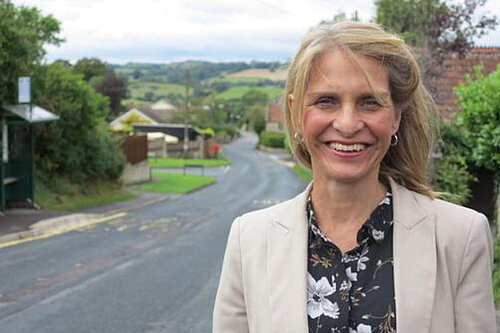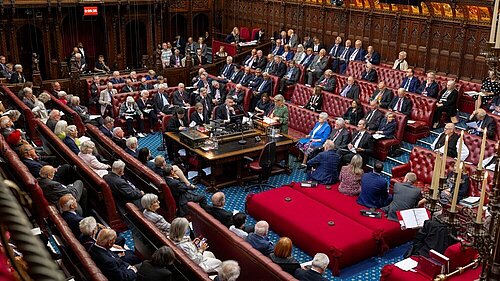
Conversion Therapy: Another U-Turn
Liberal Democrat MP for Bath Wera Hobhouse has given a cautious welcome to the latest Conservative U-Turn over Conversion Therapy.

[CW: Reference to suicide, self-harm and abuse]
A bill to ban conversion therapy has topped the ballot for Private Member’s Bills in the House of Lords, meaning it has the potential to become law.
The ‘Conversion Therapy Prohibition (Sexual Orientation and Gender Identity) Bill’, introduced by Liberal Democrat peer Baroness Burt of Solihull, would outlaw the practice of attempting to change someone’s sexual orientation or gender identity. Conversion therapy has been widely condemned as a form of torture and abuse, and has been linked to a range of negative mental health outcomes, including suicide.
Baroness Burt said: “Conversion therapy is a barbaric practice that has no place in modern society. It is important that we send a clear message that this kind of abuse will not be tolerated.
“I am hopeful that my bill will receive the support it needs to become law. This would be a major victory for the LGBT+ community and for all those who believe in equality and human rights.”

The bill has the support of the Liberal Democrats, who have long called for a ban on conversion therapy. As Wera Hobhouse said when the party adopted the policy in September 2021 for an immediate ban in all forms:
“The last three Conservative Prime Ministers have each promised to ban it, but still we have seen no action to live up to this promise.
“Let’s be clear – conversion therapy is a form of torture. Why should we allow religious organisations free reign to induce or pressure people into undertaking this dangerous practice? We should be teaching people to embrace who they are, not try and be something they’re not…
“Liberal Democrats will not stand for this injustice. We are calling for an immediate ban on conversion practices in all forms, with no exemptions. The Government must honour their commitment to the LGBT+ community and act now.”

The bill is now likely to be debated in the House of Lords in the coming months. If passed by the Lords, it will then go to the House of Commons for further consideration.
LGBT+ Liberal Democrats welcome and commend Baroness Burt’s continued leadership and unwavering support for banning conversion therapy, an abhorrent practice that has no place in society.
Conversion therapy is a harmful practice that has no place in modern society. It is based on the false premise that being LGBT+ is “wrong” or “unnatural”, and that it can be “cured” or “changed”.
Conversion therapy can take many forms, but it often involves psychological manipulation, coercion, and even physical violence. It can have a devastating impact on victims’ mental and physical health, and can lead to depression, anxiety, suicide, and self-harm.
While the NHS has taken steps to reduce conversion therapy, Government statistics suggest most conversion therapy takes place outside healthcare settings.
Government statistics also claim that transgender people are more likely to be subject to conversion therapy than non-transgender LGB+ people.
A trans-inclusive ban on conversion therapy would send a clear message that this kind of abuse will not be tolerated. It would also protect LGBT+ people from the harmful effects of this practice.
If you support a ban on conversion therapy, there are a number of things you can do to help:
By taking action, you can help make a difference in the fight to protect all LGBTQ+ people from the harmful effects of conversion therapy.